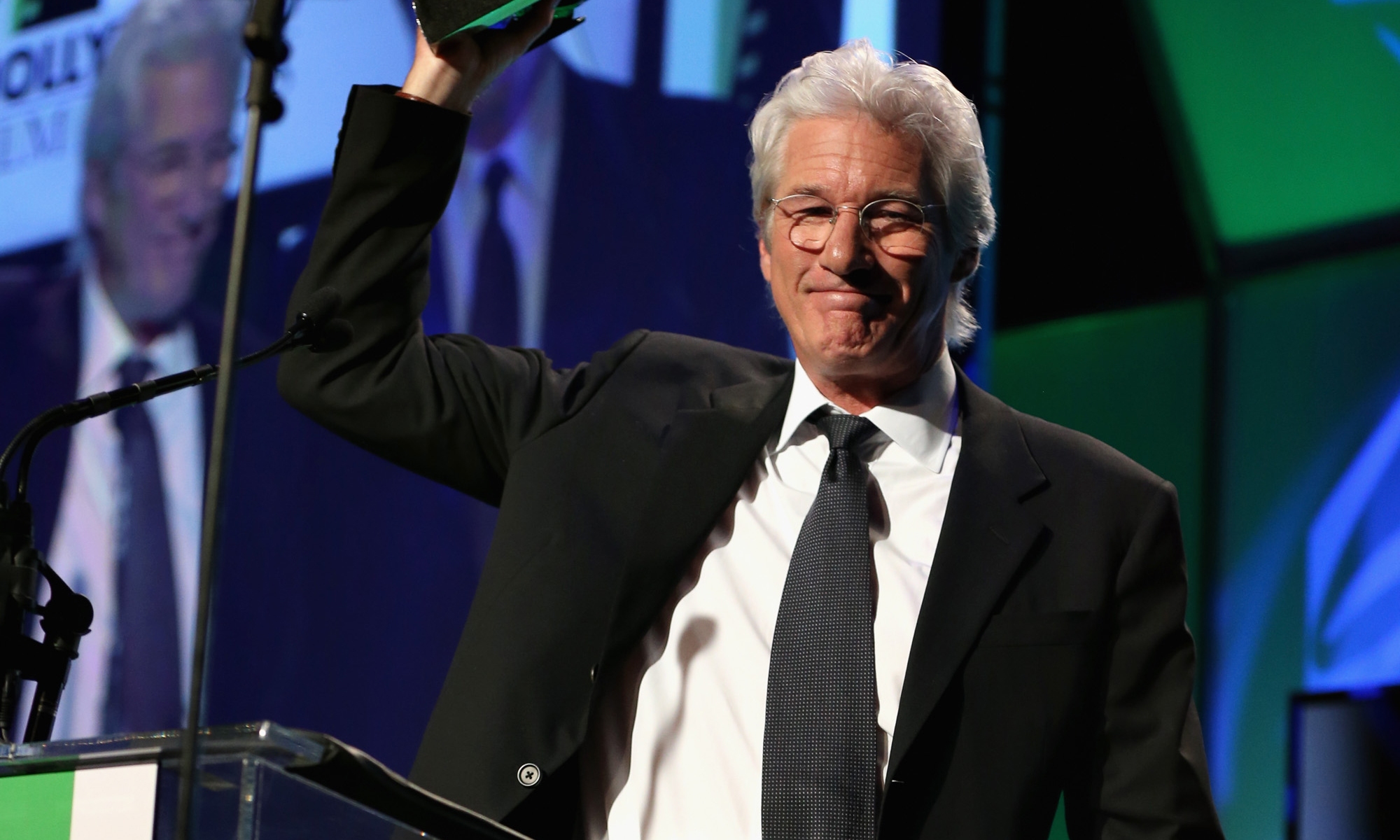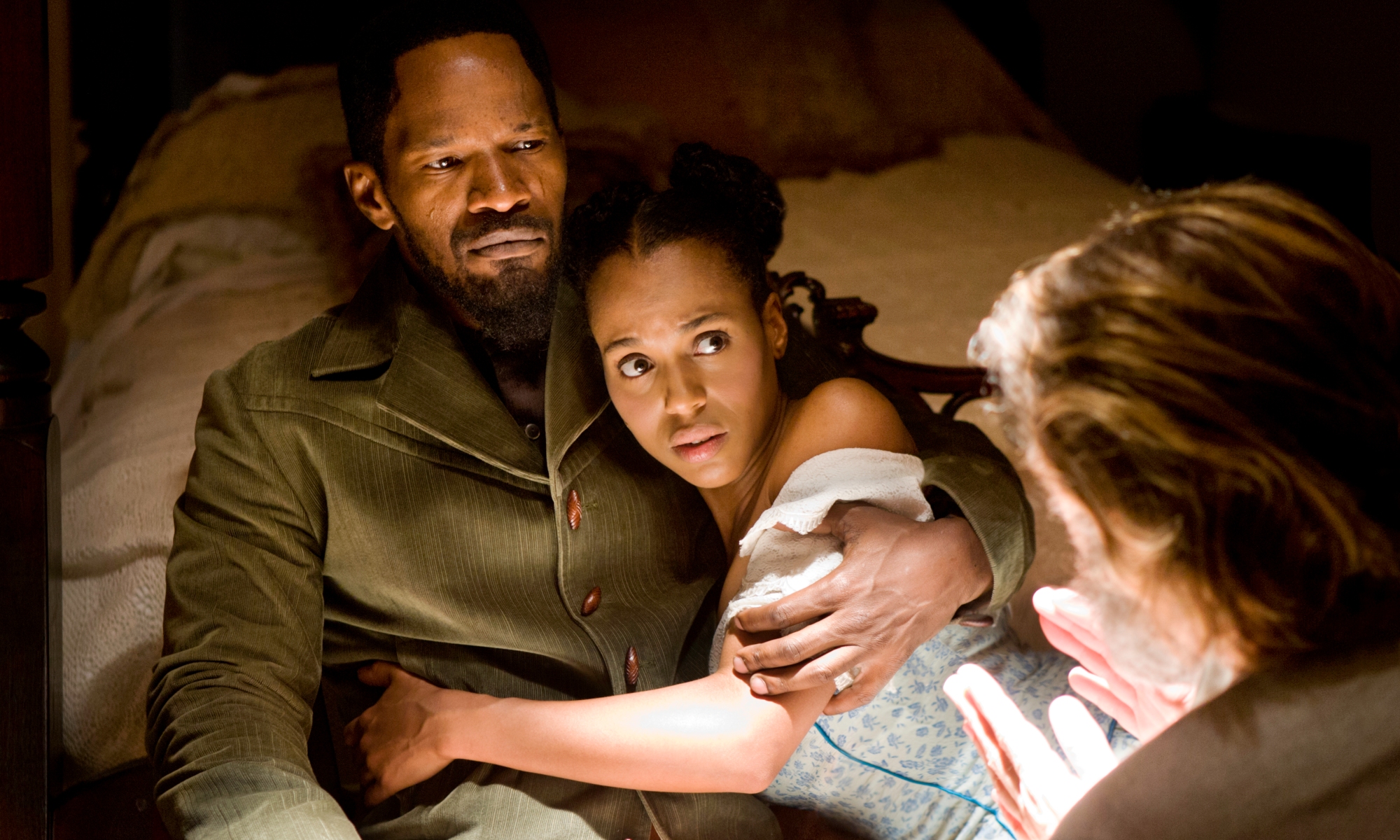When it comes to straddling comedy and drama, few performers possess the range and commercial longevity. Count Amy Adams as one of those few. In the afterglow of her Oscar-nominated turn as the filter-less Southern-fried Ashley in 2005’s Junebug, Adams continues to rally Academy voters for her somber roles (her suspicious nun in 2008’s Doubt and her Gaelic gal in 2010’s The Fighter) as well as families for her Disney films (last winter’s The Muppets and 2007’s Enchanted). In her latest role as Peggy Dodd, the woman behind Philip Seymour Hoffman’s philosophical cult leader Lancaster Dodd in Paul Thomas Anderson’s The Master, Adams brings a fierce gravitas to every scene she’s in, even when she isn’t speaking. When deconstructing her process, Adams is literally speechless: “The mystery of working with Paul is part of the wonderful experience. You have to invest in the moment and invest in the experience. Of course, you can ask questions. But I always find that living the experience is the answer.”
AWARDSLINE: You can play comedy and serious drama equally. Was achieving this dynamic something you and your talent reps planned or was it serendipity?
AMY ADAMS: It wasn’t so much that we sat there and had a strategy meeting. I finished The Muppets and was looking for what I would be doing next, and The Master presented itself. I do like to challenge myself and have it feel like different experiences in developing characters. Then I went from The Master to Superman. So it’s something I’m looking for from project to project rather than an overall strategy.
AWARDSLINE: What did you do to prepare for the role? Peggy has this Amish appearance, not to mention being controlling.
ADAMS: Yes, she does have a puritanical, buttoned-up way about her. Paul saw her as omnipresent and wanted her around even if she wasn’t involved in the action of the scene. This helped me in forming the character.
AWARDSLINE: How does Paul work with his actors? Does he rehearse a lot?
ADAMS: Paul’s process is immersive and actually quite fluid. There’s no particular technique or category to throw it in. We didn’t do a lot of rehearsals, at least I didn’t. There are conversations. I would love to have anecdotes and easy answers, but it’s so immersive that you come out of it—you don’t feel the same, and you can’t figure out why. It’s a wonderful confusion, so it’s very hard to put your finger on the experience.
AWARDSLINE: As widely reported, the film is inspired by the life of Scientology founder L. Ron Hubbard. Did you read up on Dianetics or did you just leave it to the script?
ADAMS: I left a lot to the script. I read Dianetics before and for some reason I remember it being a self-help book. I really let Paul guide me. I paid more attention to the era, to figure out women’s roles and their place in society. It’s changed so much over the past 100 years, so that’s always fascinating to me when I’m revisiting the past: To see where women were at that time. I read this book a while ago, The Feminist Mystique, and I remember the author talking about women’s roles during post-war (in which The Master is set). Peggy was clearly a bright and educated woman and her being behind a man was a much more powerful thing than for her being out on her own. So that’s what I went back to: The idea of there being limited options for an intelligent, ambitious woman.
AWARDSLINE: The fact that she can speak out at dinner and exclaim, “We can’t trust Freddie” proves Peggy isn’t a second-class citizen.
ADAMS: No, she’s not a second-class citizen. But at that point, I also try to stay very mannered because I’m in front of the children, and it’s important that I give Lancaster the respect. I’m not yelling at him nor am I manipulating him as I do at a different time in the film where I’m much more direct. Several times when we’re in private, there’s a different Peggy than the one in front of his children where she maintains a level of respect and hierarchy; an arena where she doesn’t want to offend him or push the wrong button.
AWARDSLINE: Let’s address the elephant in the room: That scene where you…[Ed. note: Peggy aggressively fondles Lancaster after a drunken soiree in an effort to discipline him.]
ADAMS: (Laughs.) Really take control of him!
AWARDSLINE: Yes, it’s a bold scene because you’re getting your man back in order.
ADAMS: That scene let me know a lot about who Peggy was, and mercifully, we only had to do it in two takes.
AWARDSLINE: And what was it that you learned about her?
ADAMS: There was a coolness to her that I found so interesting in the writing. I wish I had the script in front of me, so I could say it in Paul’s brilliant words about rinsing her hand off and reaching over to the towel, and that was the whole thing to me: She’s a girl, and she’s going to do what she needs to do to get the job done. That was the scene that made me go, “Oh, O.K. I get her.”
AWARDSLINE: What’s your interpretation of Lois Lane in the upcoming Man of Steel?
ADAMS: I grew up with Margot Kidder as Lois Lane, so I didn’t want to try and be that version. Zack (Snyder) said that he wanted to play for more realism. There’s definitely still banter (with Superman). She’s tough, modern, and more contemporary. There’s also a lot more action than I’ve seen in my career.
AWARDSLINE: You’re also prepping to play Janis Joplin?
ADAMS: It’s still in development; I’ve been talking to people about that over the last couple of years. It’s one of those that is scary to think about, but I often say, “If it isn’t scary, I shouldn’t be doing it,” so I’m typically scared before I start everything.











